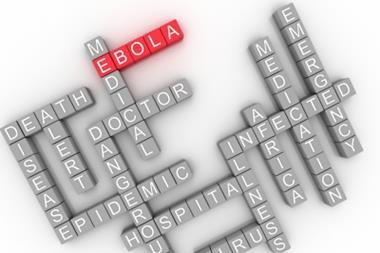The mosquito-borne disease is unlikely to cause severe business interruption

The World Health Organisation (WHO) has declared the Zika virus an international public health emergency, but the disease is unlikely to have any major consequences for businesses, as the virus only transfers from human to human in rare instances, Benedict McKenna, operations vice president, claims manager at FM Global, says.
Global health experts have been concerned about Zika ever since the start of the current outbreak in May 2015. The viral disease displays no or mild symptoms in most adults, but in unborn babies it can cause microcephaly – a birth defect where the baby is born with an abnormally small head caused by an underdeveloped brain – as well as other severe brain defects.
Brazil has been worst hit by the Zika outbreak. From 22 October 2015 to 30 January 2016, the South American country recorded 404 confirmed and 3,670 suspected cases of microcephaly, compared to fewer than 150 cases in the whole of 2014.
However, the virus has spread rapidly across most of Latin America, with now more than 20 countries affected. It is likely the disease will continue to spread further and a report by the University of Oxford, Harvard Medical School and other universities estimates that over 2.17 billion people live in areas where the mosquitos that transmit the Zika virus could survive.
Zika’s ability to spread so far and fast, combined with the fact there are no vaccines and rapid and reliable diagnostic tests available, moved the World Health Organisation (WHO) to declare Zika a ‘public health emergency of international concern’ on 1 February 2016.
By doing so, the WHO has marked the disease as a serious global threat, on par with Ebola, which killed 11,310 people in West Africa between March 2014 and March 2016.
In a business setting however, Zika is very different from Ebola as it is spread via mosquitos, rather than human-to-human contact. In rare instances, the Zika virus could be transmitted from human to human, but only sexually, and it is therefore unlikely that people will be at risk of infection at the workplace.
Human-to-human communicable diseases such as Ebola, norovirus, E. Coli, MRSA and legionnaires’ disease, on the other hand, could seriously disrupt business. Companies could be forced to shut down their operations to prevent further infection, and items at risk of carrying the virus may need to be cleaned, removed or disposed of. This could end up costing companies millions of dollars.
Following requests from clients worried about their business’ exposure to such situations, FM Global recently decided to include communicable diseases in its Advantage Policy. “We have had requests for communicable disease type cover, for legionnaires’ disease for instance, which starts from a mould spore and is airborne, so it can develop through air conditioning at work. We’ve seen legionnaires’ disease in shopping centres in the past, so it’s quite a big exposure for clients,” says McKenna.
An outbreak of a communicable disease such as Ebola is a concern for risk managers anywhere, McKenna says. “Because the WHO is very quick these days in issuing advisories, I think we managed to avoid Ebola becoming a pandemic within Europe or the Americas. I don’t think Ebola had much, if any, effect on industry at large, but there’s always the concern that somebody comes back from [an affected region], goes back to work not thinking about it and then infects their colleagues.”




















No comments yet